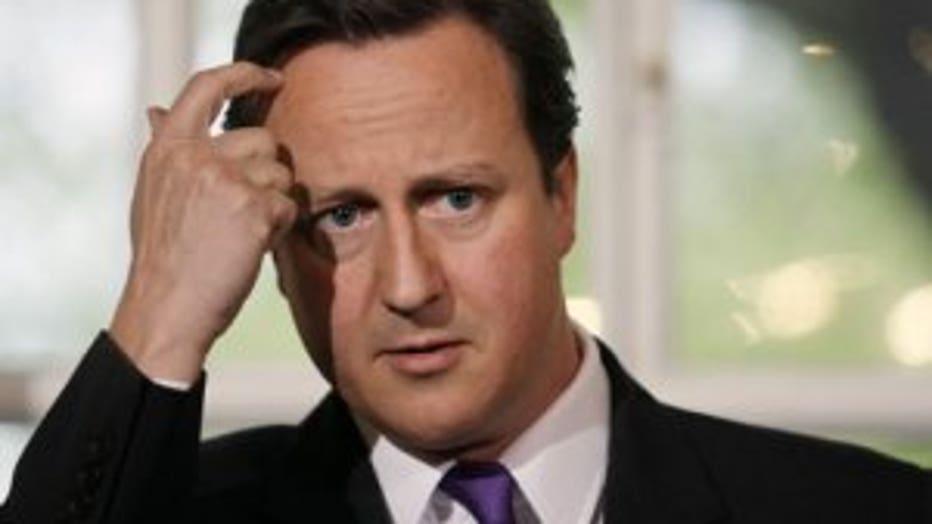British Parliament rejects immediate use of force in Syria
By Henry Chu
Los Angeles Times
LONDON -- A sharply divided British Parliament on Thursday rejected the immediate use of force as a response to suspected chemical attacks in Syria, putting Washington on notice that it would be deprived of the assistance of its most trusted ally if it launches a strike on Damascus in the next few days.

British Prime Minister David Cameron
Hours of impassioned debate in the House of Commons culminated in a 285-272 vote against a government motion to condemn the alleged use of poison gas against Syrian rebel strongholds and to uphold military reprisal as a legitimate option against the government of President Bashar Assad.
The surprise defeat for the government of Prime Minister David Cameron does not completely rule out the possibility of British involvement in eventually punishing Assad’s government militarily.
But analysts said it would be difficult, perhaps impossible, for Cameron to bring such a course of action to another vote in Parliament without satisfying skeptics’ demands of garnering United Nations backing for armed intervention -- believed unlikely -- or persuading lawmakers that all other avenues for trying to prevent chemical attacks in Syria had been exhausted.
“It is clear to me that the British Parliament, reflecting the views of the British people, does not want to see British military action. I get that, and the government will act accordingly,” a tense-looking Cameron said immediately after the vote.
British lawmakers, including some of Cameron’s fellow Conservatives, demanded restraint until U.N. weapons inspectors issue their findings from an investigation in Syria. There were similar calls from France and other European nations.
The hesitation on this side of the Atlantic means that, should President Obama decide to mount an armed strike on Damascus within the next few days, he will probably have to do so without the backing -- or help -- of some of Washington’s best friends.
The leader of Britain's opposition Labor Party said Britain should be free to make its own decisions in its own time, without undue external pressure.
“There mustn’t be a rush to judgment” because of “an artificial timetable set elsewhere,” Labor leader Ed Miliband said, in a clear allusion to the U.S.
His party voted en bloc Thursday against Cameron’s motion for an endorsement, in principle, of a possible military intervention in Syria.
Even that request was watered down from the one Cameron had planned to introduce asking for immediate authorization of a strike on Damascus.
One of the most vocal advocates of a forceful response to Assad’s alleged use of chemical weapons, Cameron has been brought up short in the last few days by warnings from lawmakers against acting without their blessing, which he technically does not need to launch military action.

